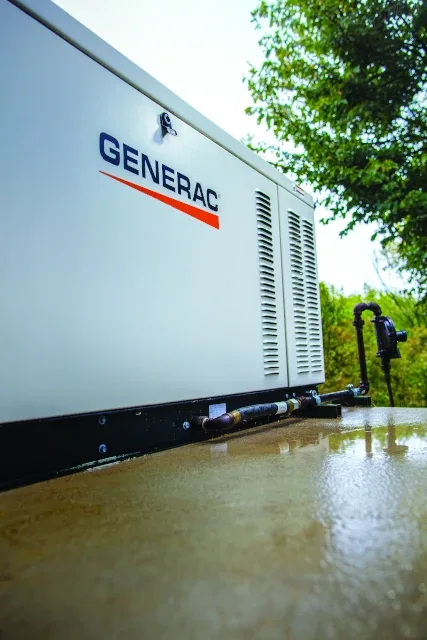Ultimate Guide to Power Generation with Propane for Residential Construction
In the ever-evolving world of residential construction, finding efficient and reliable power generation solutions is crucial. Whether you're a builder looking to optimize your projects or a homeowner seeking dependable energy, propane might just be the game-changer you've been searching for. This guide delves into why propane is becoming a go-to for residential power generation, its myriad benefits, and how it can transform your construction projects.
Why Choose Propane for Power Generation?

Cost Benefits of a Propane Generator
Efficiency and Reliability
Propane is known for its high energy efficiency. It burns cleaner than many other fossil fuels, providing consistent and reliable energy. This means fewer interruptions and more dependability, which is especially critical during power outages or in remote locations where grid access is limited.
Environmental Benefits
Using propane can significantly reduce your carbon footprint. It emits fewer greenhouse gases compared to traditional power generation methods like coal or oil. For builders and homeowners who prioritize sustainability, propane is an excellent choice that aligns with eco-friendly goals.
Cost-Effectiveness
Propane systems can be more cost-effective in the long run. The fuel itself is often cheaper than electricity or diesel. Plus, propane-powered appliances and generators typically require less maintenance, leading to additional savings.
Applications of Propane in Residential Construction
Backup Power Generators
One of the most common uses of propane in residential settings is for backup power generation. Propane generators can automatically kick in during power outages, ensuring that homes remain powered, which is crucial for safety and comfort.
Heating Solutions
Propane isn't just for power generation; it's also widely used for heating. Propane furnaces and water heaters are highly efficient, providing consistent warmth and hot water even in the coldest conditions.
Cooking and Appliances
Many homeowners prefer propane-powered stoves and ovens for their precision and control. Additionally, propane can power other household appliances, including clothes dryers and outdoor grills, making it a versatile choice for various home needs.
Advantages of Propane in Residential Construction
Versatility
Propane's versatility is one of its biggest selling points. It can be used for heating, cooking, water heating, and even as fuel for fireplaces and outdoor lighting. This flexibility allows builders to offer homeowners a comprehensive energy solution.
Energy Independence
With propane, homeowners can achieve greater energy independence. They are not solely reliant on the electrical grid, which can be particularly beneficial in areas prone to outages or in off-grid locations.
Safety
Propane is a safe energy source when properly handled. Propane tanks are built to rigorous safety standards, and the fuel itself has a narrow range of flammability, reducing the risk of accidental ignition.
Implementing Propane Systems in Construction Projects
Planning and Design
Incorporating propane into your construction project starts with careful planning and design. Builders should work with propane suppliers and professionals to design systems that meet the specific energy needs of the home while ensuring compliance with local regulations and safety standards.
Installation
Professional installation is crucial for propane systems. Qualified technicians will ensure that tanks, lines, and appliances are installed correctly and safely. This step is vital to maximize the efficiency and longevity of the system.
Maintenance
Regular maintenance is essential to keep propane systems running smoothly. This includes periodic inspections and servicing of tanks, lines, and appliances to prevent leaks and ensure optimal performance.
Conclusion: The Future of Residential Construction with Propane
The future of residential construction looks bright with propane. Its efficiency, reliability, and environmental benefits make it a compelling choice for modern homes. Builders who integrate propane into their projects can offer clients a robust, versatile energy solution that stands up to the demands of contemporary living.
FAQs
Q: Is propane a renewable energy source?
A: While propane itself is not renewable, it is a clean-burning fuel that can be part of a broader strategy to reduce greenhouse gas emissions.
Q: How long does a propane generator last?
A: The lifespan of a propane generator can vary, but with proper maintenance, it can last for many years, often longer than gasoline or diesel generators.
Q: Can propane systems be used in off-grid homes?
A: Absolutely. Propane is an excellent choice for off-grid homes due to its reliability and versatility.
Q: Is propane safe to use in residential settings?
A: Yes, when installed and maintained by professionals, propane is a very safe energy source for residential use.
Explore How Propane Can Power Your Next Residential Construction Project
Get a quote from Heart of Texas Propane
More Fuel for Thought Blog Posts

Propane for Food Trucks
Food trucks in the Texas Hill Country rely on propane for cooking, heating, and refrigeration. Get reliable, affordable propane service today!

Maximize Your Propane Before Winter Ends
Get the most out of your propane supply before winter ends with these 5 easy tips for efficiency, savings, and appliance maintenance.

Propane Whole Home Generators
Discover the benefits of propane whole home generators. Learn about costs, installation tips, and why they’re essential for Texas power outages.










